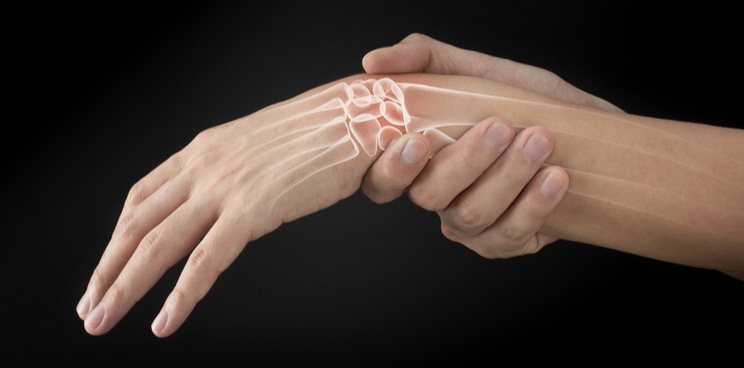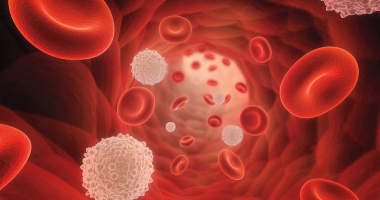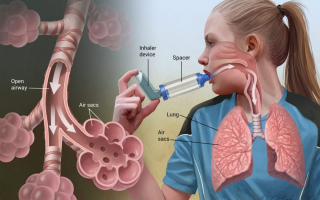Top 8 Signs and Symptoms of Copper Deficiency
The body uses copper, an important mineral, for a variety of functions. It ensures your nervous system is functioning properly, supports strong, healthy bones, ... read more...and aids in maintaining a healthy metabolism. Consuming insufficient amounts of copper may eventually result in insufficiency, which can be harmful. Other causes of copper insufficiency include celiac disease, digestive system surgery, and overconsumption of zinc, which competes with copper for absorption. The most typical indications and symptoms of copper deficiency are listed below.
-
One of the numerous reasons for weakness and exhaustion may be a copper deficit. In order to absorb iron from the intestines, copper is necessary. The body may absorb less iron if copper levels are low. As a result, the body may develop iron deficiency anemia, which prevents the tissues from receiving adequate oxygen. You may become weaker and fatigue more quickly if you don't get enough oxygen.
Anemia may result from copper deficiency, according to a number of animal studies. The body's primary energy source, adenosine triphosphate (ATP), is also produced by cells using copper. This indicates that a copper deficit may have an impact on your energy levels, which again encourages weakness and weariness. Fortunately, consuming a diet high in copper can help treat anemia brought on by copper deficiency.

Fatigue and Weakness 
Fatigue and Weakness -
Those who are prone to illness may be deficient in copper. That's because copper is essential for keeping the immune system in good shape. Low copper levels might make it difficult for your body to produce immune cells. Your white blood cell count might be significantly reduced as a result, impairing your body's capacity to fight illness.
Neutrophils, which are white blood cells and the body's first line of defense, are produced when copper levels are low, according to studies. Fortunately, consuming more foods high in copper can help counteract these impacts. An immune system that is compromised by the copper deficiency may make people more susceptible to illness. By consuming more copper, this can be cured.

Frequent Sickness 
Frequent Sickness -
A disorder called osteoporosis is characterized by fragile and brittle bones. It has been connected to a copper shortage and grows more prevalent with age. For instance, a review of eight research involving more than 2,100 individuals revealed that those with osteoporosis had lower copper levels than healthy ones.
Your bones' internal cross-linking mechanisms involve copper. These cross-links make sure that bones are robust and healthy. Additionally, copper stimulates the body to produce more osteoblasts, which are cells that support bone tissue remodeling and augmentation. Bone tissue is strengthened by processes that copper is a part of. A lack of copper may worsen osteoporosis, which causes hollow and porous bones.

Weak and Brittle Bones 
Weak and Brittle Bones -
Learning and memory might be hampered by copper deficiency. This is so because copper is crucial for the growth and function of the brain. Enzymes that aid in the brain's energy supply, defense mechanism, and signal transmission to the body needs copper.
On the other hand, disorders like Alzheimer's disease that impair brain development or have an impact on learning and memory have been related to copper deficiency. Intriguingly, research discovered that individuals with Alzheimer's had up to 70% less copper in their brains than those who did not have the condition. Copper contributes to healthy brain growth and operation. Thus, learning and memory issues might result from copper deficiency.

Problems With Memory and Learning 
Problems With Memory and Learning -
Proper walking may be more difficult for those with copper deficiencies. Copper is used by enzymes to keep the spinal cord in top condition. Enzymes have a role in the spinal cord's insulation, enabling the transmission of messages from the brain to the body. Less spinal cord insulation might result from these enzymes not functioning as well as they should due to copper shortage. As a result, signals are not transmitted as effectively.
In fact, the copper shortage may result in a 56% reduction in the insulation of the spinal cord, according to animal research. Signals between the brain and body control walking. Copper deficiency may result in loss of coordination and shakiness because these signals are impacted.

Difficulties Walking 
Difficulties Walking -
A copper deficit may make a person more susceptible to chilly weather. Together with other minerals like zinc, copper contributes to the maintenance of healthy thyroid gland function. According to studies, copper levels are directly related to the thyroid hormones T3 and T4 concentrations. These thyroid hormone levels decrease when blood copper levels are low. As a result, the thyroid gland could not function as well.
Low thyroid hormone levels may cause you to feel chilly more quickly since the thyroid gland regulates your metabolism and heat production. Over 80% of those with low thyroid hormone levels are thought to experience increased sensitivity to cold temperatures.

Sensitivity to Cold 
Sensitivity to Cold -
Melanin, a pigment, considerably influences how dark a person's skin is. In comparison to those with darker skin, those with lighter skin often have fewer, smaller, and lighter melanin pigments. It's interesting to note that melanin-producing enzymes use copper. Because of this, a copper shortage may interfere with the formation of this pigment, resulting in pale skin. More human-based studies examining the connection between copper shortage and pale skin are nonetheless required.
Melanin, a pigment, also affects hair color. Copper insufficiency may result in premature graying of the hair because low copper levels might impair the production of melanin. While there is some study on the relationship between copper shortage and the production of melanin pigment, very few studies have focused explicitly on the relationship between copper deficiency and gray hair. The connection between the two would be made clearer with more human-based study in this area.

Premature Gray Hair 
Pale Skin -
Long-term copper deficiency can result in vision loss, a dangerous ailment. Numerous enzymes that support the healthy operation of the nervous system need copper. This indicates that issues with the neurological system, such as eyesight loss, might result from the copper shortage.
It appears that persons who have undergone digestive system surgery, such as gastric bypass surgery, are more likely to experience visual loss caused by copper deficiency. This is due to the possibility that these operations will decrease copper absorption by the body. While some research suggests that copper deficiency-related vision loss is reversible, other investigations have found no improvement in vision following copper consumption increases.

Vision Loss 
Vision Loss





























